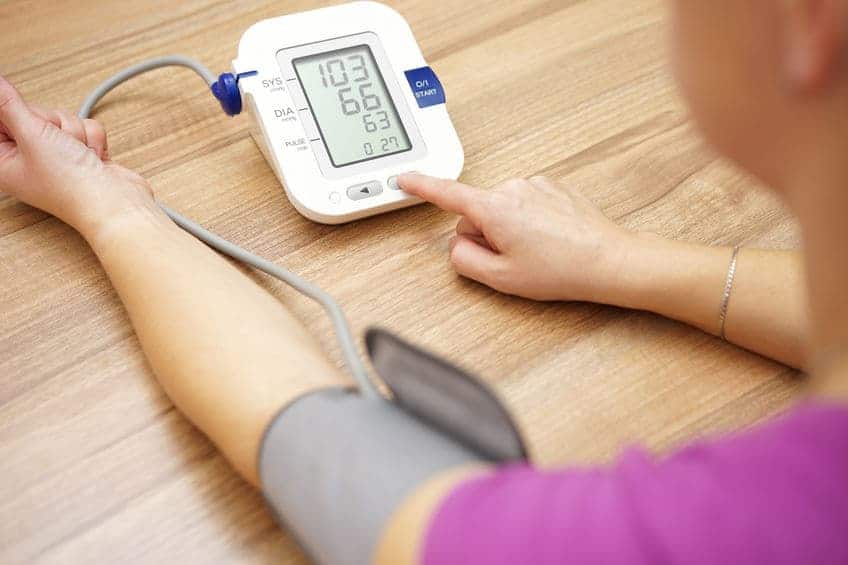Hypertension, also known as having high blood pressure, is one of the most common medical conditions around the world. Hypertension occurs when the pressure that your blood exerts over your blood vessels is too high. Anyone can develop hypertension, but it is more common in older patients.
Some of the risk factors associated with hypertension include:
● Age: your risk of developing hypertension increases as you age.
● Gender: until the age of 64, men are more likely to develop high blood pressure. But after 65 years old, women are more likely to suffer from this condition as a result of hormonal fluctuations.
● Ethnicity: African-Americans, Asians, Pacific Islanders, native Hawaiians, and native Americans have a higher of developing high blood pressure.
● Having chronic kidney disease, sleep apnea, or diabetes
● Sedentary lifestyle
● A high-sodium, unbalanced diet
● Excessive alcohol consumption
● Being overweight or obese
● High cholesterol levels
● Smoking tobacco
● High stress levels
Hypertension is a chronic health condition; however, there are many pharmacological treatments and self-management strategies that can help you manage this disease.
What are the best self-management strategies for hypertension?
There are many things you can do to manage high blood pressure. Most of these strategies aren’t complicated; instead, they involve simple changes that you will need to include in your everyday life. These self-management strategies include:
● Blood pressure self-monitoring: learning how to measure your own blood pressure and doing so everyday can help you detect whether your treatment is working correctly.
● Adherence to treatment: this may sound obvious, but many patients with hypertension often forget to take their medications. Using a pill organizer or setting an alarm on your phone or clock could help you remember to take your medications as prescribed.
● A low-sodium, balanced diet: consuming less sodium can help lower high blood pressure. Sodium is found in many foods, especially processed foods, fast foods, soda drinks, sauces, cold meats, and many canned goods. Reducing your intake of these foods and adding less salt to your meals can help you manage your blood pressure.
● Regular exercise: exercising regularly can strengthen your heart, which means that your heart will have to work less to pump blood effectively. In fact, exercising regularly can eventually make you require less medications for hypertension.
Available treatments for hypertension
Modern medicine has developed many different pharmacological treatments for hypertension. Depending on the severity of your disease, your doctor could prescribe one or more of these medications in varying doses.
These are some of the most common medications used for hypertension:
● Beta-blockers
● Alpha-blockers
● Renin inhibitors
● Angiotensin-converting enzyme (ACE) inhibitors
● Angiotensin II receptor blockers (ARBs)
● Alpha-agonists
● Calcium channel blockers
● Diuretics
Long-term management of hypertension
In most cases, hypertension is a chronic condition, and you will need to manage it as such. Hypertension is a serious condition that must be taken seriously; however, you can manage it effectively through a combination of medications and healthy lifestyle habits.
After you receive a diagnosis, your doctor will be able to determine which type of medication suits you best. You might have to try out different treatments, combinations, and dosages until you find one that works for you. Additionally, you will probably be advised on how to lead a healthier lifestyle to manage your blood pressure.
Possible complications of poorly-managed hypertension
Poorly managed hypertension can affect every organ in your body in the long-term. Since every part of your body has blood vessels and requires blood circulation, high blood pressure can lead to vast consequences.
Some of the most common complications of hypertension include:
● Heart failure
● Stroke
● Kidney disease
● Cardiac arrhythmias
● Loss of vision
● Impaired cognition
● Coronary artery disease
● Sudden death
Hypertension is a common disease that affects millions of people worldwide. Having unchecked high blood pressure can have a profoundly negative effect on your health and affect your entire body. Fortunately, a combination of medications and lifestyle changes can help you manage this condition and lead a healthy life.









